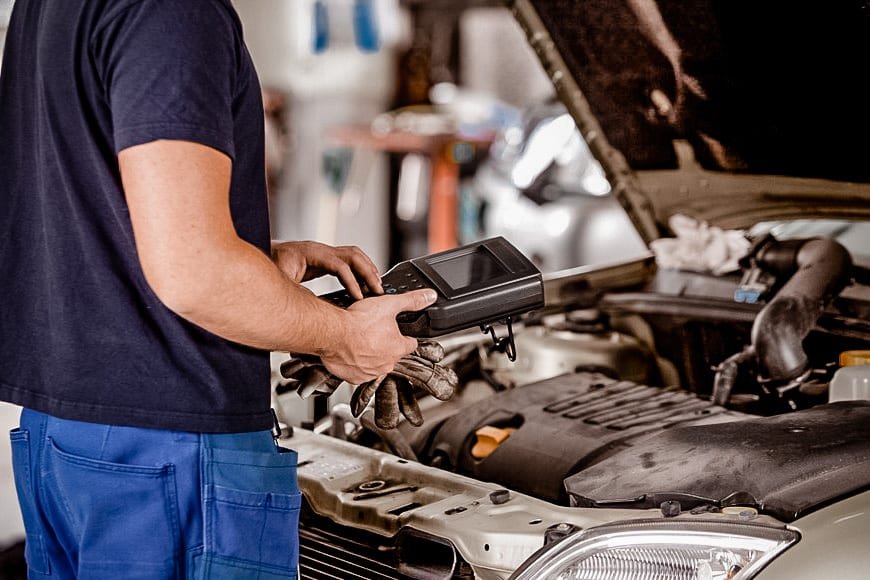Buying a used car can be an exciting yet overwhelming process. The thrill of getting behind the wheel of a new vehicle often overshadows the practical steps required to make a safe and wise purchase. One of the most overlooked steps is arranging a Pre-Purchase Car Inspection London. Many buyers assume that the car looks fine, sounds fine, and therefore must be fine. However, the reality is that skipping this critical step can expose you to serious financial losses, safety issues, and long-term regret.
Undetected Mechanical Issues
At first glance, a used car may appear to be in good condition. The paint might shine, the tyres may look new, and the engine might start without hesitation. But underneath the surface, there could be hidden mechanical problems that only a trained mechanic can identify.
Skipping a pre-purchase inspection means you might never know about worn-out brake pads, transmission issues, leaking fluids, or a failing suspension system until it’s too late. These issues not only affect performance but also rack up significant repair costs. What appears to be a “great deal” could quickly turn into a financial burden.
Safety Risks on the Road
Perhaps the biggest danger of ignoring a pre-purchase inspection is putting yourself and others at risk. Cars with faulty brakes, worn tyres, or hidden structural damage are accidents waiting to happen. A professional mechanic doesn’t just check for cosmetic or mechanical flaws; they also look for safety concerns.
Without this step, you could unknowingly buy a vehicle that is unsafe to drive. Imagine discovering on a motorway that your brake system isn’t functioning properly. That risk alone is worth every penny.
Buying a Car with Hidden Accident History
Many sellers, especially those selling privately, may not fully disclose the car’s history. Some vehicles have been in accidents, poorly repaired, or even declared insurance write-offs in the past. While history checks can reveal some information, they don’t always show the full picture of a car’s condition.
A mechanic can detect uneven frame alignment, welding marks, or poorly replaced panels that indicate the car has been in a serious accident. Without this knowledge, you might end up with a car that looks fine but has long-term structural weaknesses.
Unexpected Repair Costs After Purchase
One of the most frustrating outcomes of skipping a pre-purchase inspection is the surprise of unexpected repair bills. You might think you’re saving a couple of hundred pounds by not paying for an inspection, but those savings can vanish quickly.
Repairs for issues such as engine overheating, transmission failure, or faulty electrical systems can easily run into the thousands of dollars. Worse still, you may end up spending more on repairs than the car is worth. A pre-purchase inspection acts like an insurance policy—it protects you from financial shocks later.
Risk of Buying a Stolen or Clocked Car
Some used cars on the market may be stolen, cloned, or have their mileage tampered with. While vehicle history checks are useful, a pre-purchase inspection can often catch signs of tampering. For example, mismatched VINs, unusual wear compared to mileage, or altered service records can all raise red flags.
If you skip this step, you may face legal issues or lose your investment entirely when the truth eventually comes to light.
Regret and Stress After Purchase
Buying a car should be a rewarding experience, not one filled with regret and stress. Imagine purchasing a vehicle only to discover, within weeks, that it requires constant repairs or is unsafe to drive. The emotional toll of dealing with breakdowns, arguments with the seller, or trying to resell a faulty vehicle can be exhausting.
A pre-purchase inspection helps you buy with confidence. You’ll know exactly what you’re getting and avoid the sinking feeling of buyer’s remorse.
Long-Term Value Loss
Even if the car seems to run fine initially, undetected issues can reduce its long-term value. A vehicle with hidden problems will depreciate faster and may be harder to resell later. Buyers are more informed than ever and often ask for inspection reports themselves. If your car doesn’t pass the test in the future, you could be forced to sell at a loss.
Final Thoughts:
Skipping a pre-purchase vehicle inspection may seem like a minor shortcut, but it can lead to significant problems. From hidden mechanical issues and safety hazards to financial losses and emotional stress, the risks far outweigh the savings. A professional inspection gives you the knowledge and confidence to make a smart, informed purchase. If you’re in the market for a used car, don’t let excitement cloud your judgment. Take the time to get a thorough inspection—it’s the most valuable step you can take to protect yourself and your investment.
